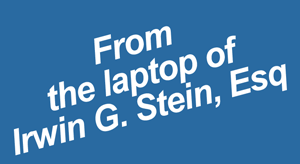 Many small and mid-sized companies seem to be assessing their option to raise equity capital using the SEC’s new Regulation A+, which was promulgated under the JOBS Act. The regulation allows companies to register up to $50 million worth of their shares with the SEC and then offer them for sale to members of the general public.
Many small and mid-sized companies seem to be assessing their option to raise equity capital using the SEC’s new Regulation A+, which was promulgated under the JOBS Act. The regulation allows companies to register up to $50 million worth of their shares with the SEC and then offer them for sale to members of the general public.
Until now, companies seeking equity capital at this low end of the market could only seek funds from wealthy, accredited investors using a different regulation; Reg. D, the private placement rule.
The upfront costs of preparing a private placement offering will always be less than the costs of a Reg. A+ offering. In both cases competent securities attorneys will prepare the prospectus. Reg. A+ requires that the company’s books be audited as well. This is an added expense. The true costs however, will be determined by who sells the offering and how it is sold.
It is not unusual for a private placement being sold under Reg. D to have an upfront load of 15% of the total amount of the offering or more. The issuing company only receives 85% or less of the funds that are raised by the underwriter.
One percent of the load might repay the company’s costs of preparing the offering. Another one percent might cover the underwriter’s marketing and due diligence costs. The rest is the sales commission and other fees that the underwriter is charging for selling the private placement.
Many accredited investors are currently purchasing Reg. D offerings and paying the 15% or more front-end load. There is no incentive for the brokerage industry to charge Reg. A+ issuers any less.
When you purchase shares in a private placement you generally cannot re-sell them. Even if the company does well at first, if it fails in later years, you still lose your money.
With Reg. A+ the shares are supposed to be freely trade-able, except that they are not. The market in which they are supposed to trade is not yet fully developed. It may not develop for quite some time.
How much will the underwriters charge for a fully underwritten Reg. A+ offering? The rule of thumb has always been that commissions go up as the risks go up. Shares issued under both Reg. D and Reg. A+ are speculative investments.
Since both regulations will yield securities that are speculative investments that cannot be re-sold, it is reasonable that underwriters will charge the same for both types of offerings.
Some companies will attempt to sell their shares under Reg. A+ directly to the public without an underwriter. Investors who purchase these shares will get more equity for their investment. That does not necessarily mean that they will get greater value. If many issuers can self-fund without an underwriter it might cause downward pressure on loads and commissions that underwriters can charge.
If commissions on Reg. A+ offerings turn out to be substantially less, many accredited investors may shift to the Reg. A+ market. More likely, some brokerage firms will sell both Reg. D and Reg. A+ offerings side by side. If they do, the commission structure and total load on each should be similar.